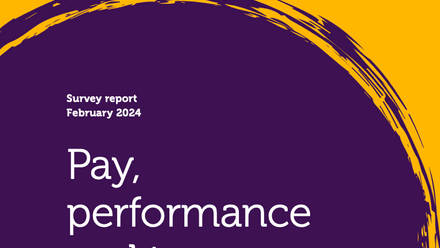Paul Johnson of IFS on the impact of COVID-19 on the economy and society

To address these issues, last month REBA welcomed Paul Johnson CBE, director at the Institute for Fiscal Studies (IFS), to the Employee Wellbeing Congress. He described how coronavirus has been disrupting the economy and exasperating inequalities.
Emphasising rather than mitigating inequalities
The financial burden of coronavirus on the UK economy has been unprecedented. In terms of government spending alone, Johnson highlighted that we have not seen borrowing at its current level since the world wars. This level of spending falls against a backdrop which has seen average incomes over the past 20 years grow very slowly.
With this in mind, it is becoming apparent that certain groups of people within our society have been significantly affected by coronavirus.
“In many respects it [coronavirus] has emphasised rather than mitigated inequalities – particularly on individual aspects,” commented Johnson.
“This is hitting low earners way harder than it is hitting high earners. The average salary of furloughed workers is staggeringly low – that’s partly because they tend to be in low earning occupations – hospitality, retail, entertainment – partly because a lot of them are working part-time, and partly because a lot of them are young,” he explained.
IFS figures reveal that the lowest earners were seven times as likely as the highest to work in a sector that was shut down during the lockdown period. Johnson added that it is rare to see such a difference between high and low earners, although it is also true that higher earners are much more likely, for example, to be able to work from home.
“If it remains the case that those sectors currently badly hit are hit for some considerable period, that’s where the high levels of unemployment are going to occur, and where further downward pressure on earnings is likely to occur,” said Johnson.
The impact on young workers and women
Young people have been particularly affected by the pandemic. Young men and young women are much more likely to working in the sectors that have been hardest hit – hospitality, retail, entertainment – than older employees.
Another stark trend has been the effect on women. Again, women are more likely to be working in shut down sectors, they’re more likely to be in the low paid groups which are being furloughed, and they were also disproportionally affected by the close down of schools.
“We know from surveys we’ve done that women were more likely to have given up their jobs or more likely to have cut their hours because of the pressure on home schooling and childcare,” explained Johnson. “Women in families have borne the brunt of the additional childcare that has been required and have lost earnings as a result.”
The impact on mental health and money
The impact on mental health has been widely acknowledged. The IFS, which has been monitoring mental health for the past decade, ran a special survey during May and June to look at the impact of lockdown on people’s mental health.
The results revealed “a huge increase in the fraction of people reporting a serious mental health problem.”
In particular, the results highlighted that the young were affected the most, with a third of young women reporting serious mental health problems during that period of lockdown.
There has also been a big impact on people’s resources and on the quality of life that they have. Those who are fortunate enough to have decent housing, gardens and so on were able to cope with this period much better than those without.
There has also been a significant effect on people’s pensions and savings. Johnson explained that they’re seeing quite large fractions of older people changing their retirement decisions. Some are deciding to retire earlier, while others will work longer because the value of their pensions and savings has taken quite a hit.
The broader economic outlook
The Office for Budget Responsibility (OBR) has created a number of growth scenarios as a result of the pandemic and the economic downturn. “Even by 2025 they think the economy will be several percentage points smaller than it would have been if the crisis had not occurred,” explained Johnson.
The OBR’s worst case, which Johnson said was not implausible, suggested that we could experience an 8-9 percentage point drop in the size of the economy. Yet, for Johnson, the most worrying figures were those around unemployment.
“We’re looking at unemployment almost certainly trebling by the beginning of next year, relative to where it was,” he said.
“This I suggest, is going to hit the young and low earners particularly hard. This is where government policy, the kickstart scheme, support for apprenticeships, investment schemes etc are hopefully going to have some impact,” he added.
Johnson explained that although he does not know where the economy will end up in five, 10 or 15 years’ time, it looks as though the coronavirus shock will particularly hit the most vulnerable.
“Those of us who are able to work from home, those of us who are higher-skilled professional jobs are probably going to be less affected by this than the millions of lower skilled hospitality, entertainment, transport workers who are being affected so badly,” he said. “Certainly in the short run this is going to make our economy even more unequal than where it started.”
What employers can do to mitigate this impact
Although many employers will not be in a position to prevent redundancies. Johnson urged employers to mindful of the way in which more vulnerable members of our society are being affected.
“Employers need to be aware of these differences [inequalities] perhaps particularly of the pressures being put on young people, women and parents, and to be appropriately sensitive to that,” he said.
The coronavirus is continuing to create havoc across the UK and globally. As we look ahead to 2021 it is clear that our economy will go through a dramatic period of change, with many employees at risk of losing their livelihoods. For employers, it will be important to support employees’ wellbeing during this turbulent time to maintain productivity and morale.
The author is Dawn Lewis, content editor at REBA.






